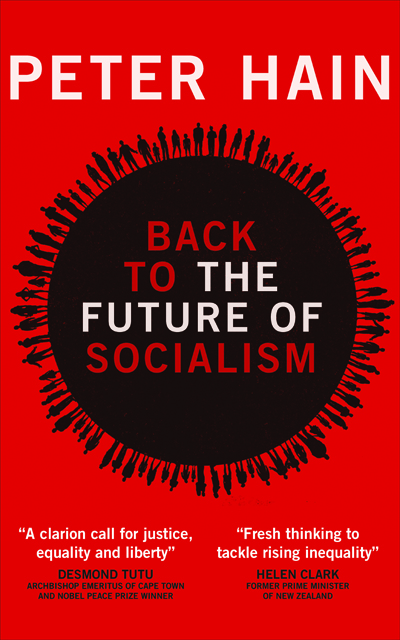Book contents
- Frontmatter
- Contents
- Frontmatter
- Preface
- Introduction: Back to the future of socialism
- 1 The Crosland agenda
- 2 New Labour, Crosland and the crisis
- 3 Finance and the new capitalism
- 4 Growth not cuts
- 5 Growth by active government
- 6 Fraternity, cooperation, trade unionism
- 7 But what sort of socialist state?
- 8 A new internationalism
- 9 Britain in Europe
- 10 Refounding Labour
- 11 Faster, sustainable growth
- 12 A fairer, more equal society
- 13 A future for Labour
- Notes
- Index
- Frontmatter
- Contents
- Frontmatter
- Preface
- Introduction: Back to the future of socialism
- 1 The Crosland agenda
- 2 New Labour, Crosland and the crisis
- 3 Finance and the new capitalism
- 4 Growth not cuts
- 5 Growth by active government
- 6 Fraternity, cooperation, trade unionism
- 7 But what sort of socialist state?
- 8 A new internationalism
- 9 Britain in Europe
- 10 Refounding Labour
- 11 Faster, sustainable growth
- 12 A fairer, more equal society
- 13 A future for Labour
- Notes
- Index
Summary
It was a world so different that it’s hard to comprehend today how politics once was. No telephones let alone smart ones and the internet. No radios let alone television. No cars to speak of. Networks meant the telegraph, connections meant the railways, and communications meant newspapers or the postal service. No Humphrys, no Dimblebys and no Paxman, and definitely no Warks, Montagues or Husains, to interrogate politicians on air. Politics was communicated face to face, mainly by mass meeting or small local gathering, and by letter or pamphlet, not text or email. Although these were the days before the sound bite, rhetoric mattered, and politicians had to campaign and to speak in the community or go unheard.
Nevertheless, the basic structures and constitutions of political parties in Britain and elsewhere in the democratic world were formed in that very age a century ago – and still survive in their fundamentals. So in the case of the Labour Party at least, reminding ourselves about the context in which these fundamentals were established in 1918 could provide some understanding as to how Labour should be forging its future.
That year was a cathartic moment for the party because it needed to change, to reach out to an electorate that had nearly trebled since the 1910 general election and now included 6 million women voters. And it did so by adopting a new constitution and a fresh policy programme.
The 1918 constitution aimed to transform what had hitherto been a narrow sectional group into a broad national party with deep local roots. Henceforth, instead of being just a federation of trade unions plus a few socialist and cooperative societies, it would also include individual members organised in constituency parties. As well as taking Labour’s message to voters, these local parties were intended to become Labour’s link with local communities. It was hoped that recruiting large numbers of individual members would keep constituency parties in touch with the concerns and ambitions of their local electorates and ensure that Labour remained representative of the people whom it sought to serve and whose support it needed to win elections.
By the time that Tony Crosland became an MP in the 1950s, first for South Gloucestershire, then for Grimsby, local Labour parties looked like their electorates. You could refer to Labour’s ‘massed ranks’ with good cause. Some local parties had huge memberships.
- Type
- Chapter
- Information
- Back to the Future of Socialism , pp. 221 - 248Publisher: Bristol University PressPrint publication year: 2015



